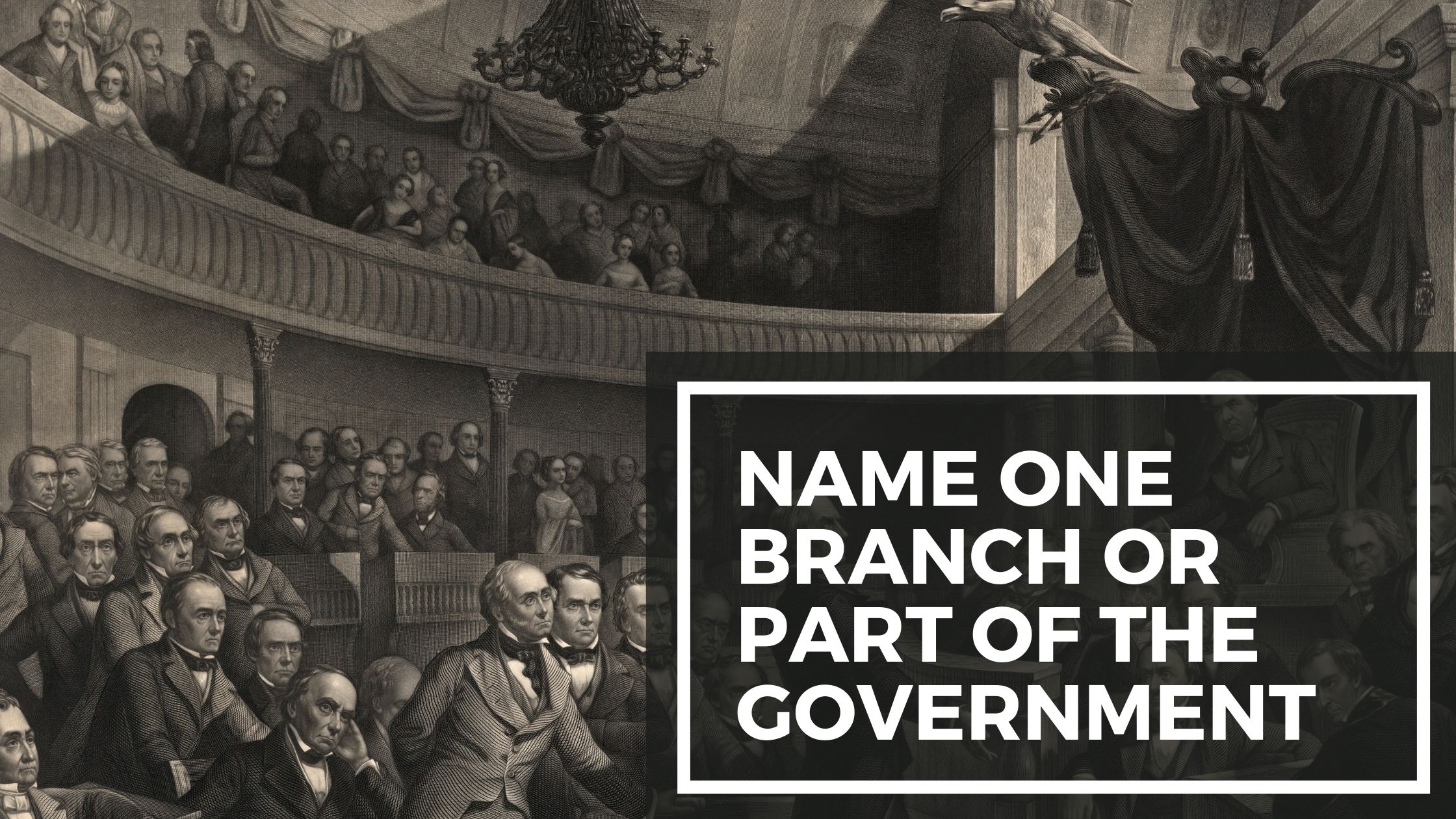Table of Contents
ToggleTo pass the US citizenship test, you will have to answer 10 of a possible 100 questions. The following question is from the USCIS test.

Get Smarter on US News, History, and the Constitution
Join the thousands of fellow patriots who rely on our 5-minute newsletter to stay informed on the key events and trends that shaped our nation's past and continue to shape its present.
Name one branch or part of the government.
Answer:
- Congress
- legislative
- President
- executive
- the courts
- judicial
The following is a full explanation of the USCIS question when choosing legislative as the answer:
The Legislative Branch of the Federal Government
As one of the oldest and most successful constitutions in world history, the United States Constitution has expertly governed American democracy for nearly two and a half centuries. It creates three separate branches of government, the legislative, executive, and judicial, each with different responsibilities and powers.
The legislative branch contains the largest number of responsibilities, reflecting the Founding Fathers’ concern with entrusting too much power to a single individual, such as a king or monarch. It comprises a bicameral Congress, containing a Senate and House of Representatives.
Membership of the Senate is apportioned equally between the states, with each state assigned two senators. In contrast, membership of the House of Representatives is apportioned based on population, with larger states designated more representatives.
At present, the Senate contains 100 members, while the House of Representatives includes 435 members.
House of Representatives – Member Requirements and Qualifications
Members of the House of Representatives must be at least twenty-five years old and a United States citizen for seven years. They must be an inhabitant of the state they are seeking to represent and are entitled to compensation paid out of the treasury of the United States. Members of the House of Representatives serve a two-year term, the shortest term of any federal government member. As a result, they are on the ballot every mid-term and presidential election.
The Speaker of the House, the presiding member over the House of Representatives, is third in line in the presidential order of succession, should the president and vice president be removed from office.
Although the original United States Constitution did not specify the presidential order of succession, it gave Congress the power to determine which officer would temporarily act as president if the offices of the president and the vice president became vacant. The Presidential Act of 1947 officially established the House Speaker as third in line to the presidency.
House of Representatives – Body Responsibilities
The House of Representatives is responsible for electing its officers, including a House Speaker to preside over the whole body. It is mandated to keep a record of body proceedings and can develop rules for operating procedures during congressional sessions. It is given the authority to discipline members for disorderly behavior, including permanently expelling a member with a two-thirds majority vote.
The House of Representatives can impeach civil officers and other federal government members, including the president and vice president, for crimes such as bribery and treason. A simple majority vote is required to impeach an individual, resulting in the case being tried by the Senate. It also is the only governmental body given the power to draft legislation relating to revenue, tariffs, or other forms of taxation.
Senate – Member Requirements and Qualifications
Members of the US Senate must be at least thirty years old and a citizen of the United States for at least nine years. They must be an inhabitant of the state they are seeking to represent and are entitled to compensation paid out of the treasury of the United States. Members of the Senate serve a six-year term and are separated into three different classes comprising about one-third of members, with a each class coming up for election every two years.
The President pro tempore of the Senate, the presiding officer over the Senate in the absence of the vice president, is fourth in line in the presidential order of succession.
Although the original United States Constitution did not specify the presidential order of succession, it gave the United States Congress the power to determine which officer would temporarily act as president if the offices of the president and the vice president became vacant. The Presidential Act of 1947 officially established the President pro tempore as fourth in line to the presidency.
Senate – Body Responsibilities
The Senate is responsible for electing its officers, including a President pro tempore to preside over the whole body without the vice president. It is mandated to keep a record of body proceedings and can develop rules for operating procedures during congressional sessions. It is given the authority to discipline members for disorderly behavior, including permanently expelling a member with a two-thirds majority vote.
The Senate is responsible for trying any civil officer impeached by the House of Representatives for crimes such as bribery or treason. While the Senate conducts the trial, the chief justice of the United States Supreme Court acts as the presiding judge over the proceeding, with a two-thirds majority vote required to convict and remove the individual from office. Although the Senate is prohibited from drafting any legislation regarding revenue, tariffs, or other forms of taxation, it can attach amendments to these bills written by the House of Representatives.
Legislative Branch – Collective Powers
The legislative branch possesses many powers and responsibilities relating to governance, surpassing the executive and judicial branches. It can impose and collect taxes, borrow money, regulate foreign and interstate commerce, and establish a monetary system. It is responsible for formulating laws relating to naturalization and immigration while also developing a uniform system for dealing with bankruptcies.
The legislative branch is responsible for creating a postal system, promoting science and the arts by developing copyright laws, and establishing a federal court system under the purview of the Supreme Court. It has the power to create laws related to piracy and other felonies committed on the high seas and can grant letters of marque and reprisal. It has the power to raise and support armed forces and develop a system of regulations governing all armed forces.
The legislative branch is also responsible for helping to maintain the militia forces of respective states. It can call the militia into active duty to suppress insurrections and civil war and repulse a foreign invasion.
Finally, it maintains exclusive control over all legal cases in the district containing the federal government.











